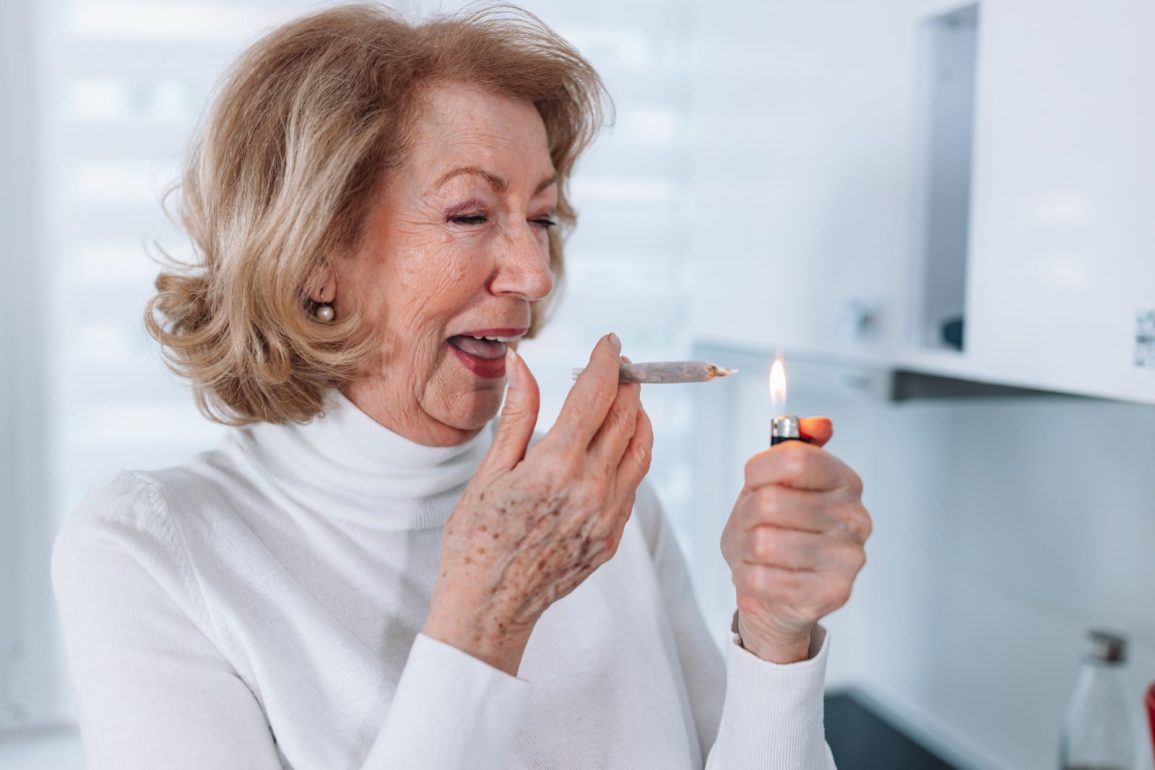The world of cannabis is a complex one, filled with various compounds and compounds that transform into others under specific conditions. One such transformation that has garnered significant attention is the conversion of THCa (tetrahydrocannabinolic acid) into Delta-9 THC when cannabis is smoked. This blog will explore the Does Thca Turn Into Delta 9 When Smoked, its implications, and what it means for cannabis enthusiasts.
Table of Contents:
- What is THCa?
- What is the Decarboxylation Process?
- How does decarboxylation work?
- Smoking and Decarboxylation
- Does Temperature Affect How THCa is Converted?
- Efficiency of Smoking in Converting THCa to Delta-9 THC
- Does Smoking THCa Get You High?
- What are the Effects of a THCa High?
- Is THCa Stronger than Delta-9?
- What is a High THCa Percentage?
- Does THCa Turn into Delta 9 When Smoked?
- Potential THCA Side Effects
- How to Use THCa?
- Effects of Delta-9 THC
- Psychoactive Properties
- Medical Benefits
- Potential Side Effects
- THCa: Frequently Asked Questions
What is THCa?
THCa, or tetrahydrocannabinolic acid, is the precursor to the well-known psychoactive compound, Delta-9 THC (tetrahydrocannabinol). THCa is abundant in raw cannabis plants and is non-psychoactive in its natural form. When you consume raw cannabis, such as in a salad or smoothie, you’re ingesting THCa rather than Delta-9 THC. THCa has potential therapeutic benefits and is being studied for its anti-inflammatory and neuroprotective properties.
What is Delta-9?
Delta-9 THC is the cannabinoid responsible for the euphoric “high” associated with cannabis use. It interacts with the endocannabinoid system in our bodies, primarily binding to CB1 receptors in the brain and central nervous system. This interaction leads to the various effects people experience when using cannabis, such as altered perception, relaxation, and increased appetite.
What is the Decarboxylation Process?
Decarboxylation is the chemical process that occurs when THCa loses a carboxyl group (COOH) through heat, time, or other forms of activation. This transformation is critical for unlocking the psychoactive properties of THCa and converting it into Delta-9 THC.
How does decarboxylation work?
During decarboxylation, the THCa molecule loses a carbon atom in the form of carbon dioxide (CO2). This results in the formation of Delta-9 THC, which is the compound responsible for the classic cannabis “high.” Decarboxylation is the reason why smoking or heating cannabis is necessary to experience the psychoactive effects.
Factors affecting decarboxylation
Several factors can influence the rate and efficiency of decarboxylation. These include temperature, time, humidity, and the method of consumption. Understanding these factors is crucial for controlling the potency and effects of cannabis products.
Smoking and Decarboxylation
How smoking cannabis leads to Decarboxylation
When cannabis is smoked, it undergoes decarboxylation due to the high temperatures involved. The flame from a lighter or the heat from a vaporizer causes THCa to lose its carboxyl group and become Delta-9 THC. This rapid transformation is why smoking is one of the most popular methods of consuming cannabis for recreational and medicinal purposes.
Does Temperature Affect How THCa is Converted?
Yes, temperature plays a significant role in converting THCa to Delta-9 THC. The optimal temperature range for decarboxylation is typically between 220°F (104°C) and 250°F (121°C). Temperatures below this range may result in incomplete decarboxylation, leading to lower THC potency, while temperatures significantly higher can degrade Delta-9 THC into less desirable compounds.
Efficiency of Smoking in Converting THCa to Delta-9 THC
Smoking is an efficient method for converting THCa into Delta-9 THC due to the high temperatures achieved during combustion. This rapid decarboxylation allows users to experience the psychoactive effects almost immediately. However, it’s important to note that some THCa may still be lost as smoke dissipates into the air, and not all of it is converted into Delta-9 THC.
Does Smoking THCa Get You High?
Yes, smoking THCa-rich cannabis will get you high, but the intensity and duration of the high may vary depending on several factors, including the strain’s THCa content, your tolerance, and the method of consumption. As THCa converts into Delta-9 THC during smoking, you’ll get to know that does thca turn into thc? : Yes, THCa (tetrahydrocannabinolic acid) can convert into THC (tetrahydrocannabinol) through a process called decarboxylation. Decarboxylation occurs when THCa is exposed to heat, such as through smoking, vaporization, or cooking. During this process, THCa loses a carboxyl group (COOH) and transforms into the active and psychoactive compound THC. This conversion is essential for experiencing the euphoric and intoxicating effects commonly associated with THC when consuming cannabis. In its raw, unheated form, THCa is non-psychoactive and does not produce the typical “high” associated with THC.
What are the Effects of a THCa High?
A THCa high is often described as being more clear-headed and less sedating than a Delta-9 THC high. Users might experience increased focus, enhanced creativity, and reduced anxiety without the pronounced “stoned” feeling. Some medical cannabis patients prefer THCa-rich strains for their therapeutic potential without the typical intoxicating effects.
Is THCa Stronger than Delta-9?
THCa and Delta-9 THC have distinct effects, and neither can be definitively labeled as “stronger” than the other. The perceived strength of these compounds depends on individual tolerance, personal preferences, and the desired outcome. Some individuals may prefer the milder, more focused effects of THCa, while others seek the traditional euphoria associated with Delta-9 THC.
What is a High THCa Percentage?
Cannabis strains with a high THCa percentage contain a significant amount of THCa relative to other cannabinoids. A high THCa percentage is often indicative of strains that have the potential to provide more pronounced THCa effects. It’s important to note that high THCa content doesn’t necessarily mean a strain is more potent overall, as other factors, such as terpenes, also influence the overall experience.
Does THCa Turn into Delta 9 When Smoked?
In summary, yes, THCa undergoes decarboxylation and turns into Delta-9 THC when cannabis is smoked or heated. This transformation is essential for experiencing the psychoactive effects commonly associated with cannabis use. The efficiency of this conversion depends on factors like temperature and time, which can be controlled to some extent by the user.
Benefits
Understanding the conversion of THCa to Delta-9 THC has several benefits. It helps users make informed choices about the cannabis strains and methods of consumption that best suit their needs and preferences. Medical cannabis patients, in particular, can benefit from strains with specific THCa and Delta-9 THC ratios to manage their symptoms effectively.
Potential THCA Side Effects
It’s crucial to be aware of potential side effects when consuming cannabis, whether in the form of THCa-rich strains or Delta-9 THC-dominant varieties. Side effects may include anxiety, paranoia, dry mouth, increased heart rate, and impaired cognitive function. These effects can vary depending on the individual and the dosage, emphasizing the importance of responsible and informed cannabis use.
Does THCA convert to Delta 9?
Yes, THCa (tetrahydrocannabinolic acid) can convert to Delta-9 THC (tetrahydrocannabinol) through a process called decarboxylation. Decarboxylation occurs when THCa is exposed to heat, such as when cannabis is smoked or vaporized. During this process, THCa loses a carboxyl group (COOH) and transforms into the active and psychoactive compound Delta-9 THC. This conversion is essential for experiencing the euphoric and intoxicating effects commonly associated with cannabis use. However, in its raw, unheated form, THCa is non-psychoactive and does not produce the typical “high” associated with cannabis consumption.
How to Use THCa?
THCa (tetrahydrocannabinolic acid) is a fascinating cannabinoid with potential therapeutic benefits. While it doesn’t produce the traditional “high” associated with Delta-9 THC, it offers a unique set of effects. Here’s how to use THCa and explore its potential benefits.
Vaporizing
Vaporizing THCa is a popular method for consuming it. Unlike smoking, vaporization doesn’t involve combustion, which can produce harmful byproducts. With a vaporizer designed for concentrates, you can heat THCa to a specific temperature range (usually around 350°F to 400°F) to activate it without burning it. This allows you to inhale the vapor and experience the therapeutic effects of THCa without the risks associated with smoking.
Cooking
THCa can also be incorporated into your cooking. Similar to the process of decarboxylation, THCa can be activated when exposed to heat. When cooking with THCa, it’s important to remember that it requires some level of decarboxylation to become more bioavailable. This can be achieved by infusing THCa into fats or oils, which are then used in recipes for edibles. Keep in mind that THCa-rich edibles may offer a different experience than traditional Delta-9 THC edibles due to the distinct properties of THCa.
Effects of Delta-9 THC
Delta-9 THC is a well-known psychoactive cannabinoid found in cannabis. When THCa is converted into Delta-9 THC, it produces a range of effects.
Psychoactive Properties
Delta-9 THC is responsible for the “high” associated with cannabis use. It can induce altered perception, euphoria, relaxation, and increased appetite. These psychoactive properties make it a sought-after compound for recreational use.
Medical Benefits
Beyond its recreational use, Delta-9 THC has potential medical benefits. It is being explored for its ability to relieve pain, reduce nausea and vomiting (especially in cancer patients undergoing chemotherapy), stimulate appetite in individuals with wasting syndromes, and manage certain neurological conditions.
Potential Side Effects
While Delta-9 THC offers various benefits, it can also lead to side effects, especially when consumed in high doses. Common side effects include anxiety, paranoia, dry mouth, increased heart rate, and impaired cognitive function. These effects vary from person to person and can be influenced by dosage, tolerance, and individual sensitivity.
Final Thoughts
Using THCa and understanding the conversion to Delta-9 THC opens up a world of possibilities in the realm of cannabis consumption. Whether you prefer the milder effects of THCa or the more potent high of Delta-9 THC, both cannabinoids offer unique experiences and potential therapeutic benefits. It’s essential to explore your options responsibly, considering your personal preferences and any specific medical needs.
THCa: Frequently Asked Questions
Is THCa the Same as Delta-9?
No, THCa (tetrahydrocannabinolic acid) is the precursor to Delta-9 THC (tetrahydrocannabinol), which is the compound responsible for the psychoactive effects of cannabis. THCa itself is non-psychoactive.
What’s the Difference Between THCa and Delta-9 THC?
The main difference is that THCa is the acidic form of the cannabinoid, found in raw cannabis, and doesn’t produce a high. Delta-9 THC, on the other hand, is the active, psychoactive form that results from decarboxylation of THCa through heat.
Which is Better, THCa or Delta-9 THC?
The choice between THCa and Delta-9 THC depends on your preferences and goals. THCa offers unique effects, while Delta-9 THC provides the classic cannabis high. It’s a matter of personal preference and intended use.
Is THCa Illegal?
THCa is generally considered legal in places where cannabis is legal for medical or recreational use, as long as it contains no more than the legal limit of Delta-9 THC. However, the legal status of THCa may vary by jurisdiction, so it’s essential to check your local laws.
Will THCa Fail a Drug Test?
THCa can potentially cause a false positive on a drug test that screens for Delta-9 THC. If you’re subject to drug testing, it’s best to consult with your employer or testing provider regarding their specific policies and thresholds.
Disclaimer – The contents of this article are provided solely for informational purposes and should not be considered medical advice. It is important to note that the information presented here is not meant to diagnose, treat, cure, or prevent any disease. Prior to embarking on any new health-related regimen, Always consult your healthcare provider before trying new supplements or treatments. Keeping you safe and well is our top priority. Additionally, it’s important to note that the FDA has not endorsed any claims regarding the health benefits of cannabis. Delta8Hub makes no guarantees or warranties regarding the accuracy, completeness, or usefulness of any messages contained here in.

